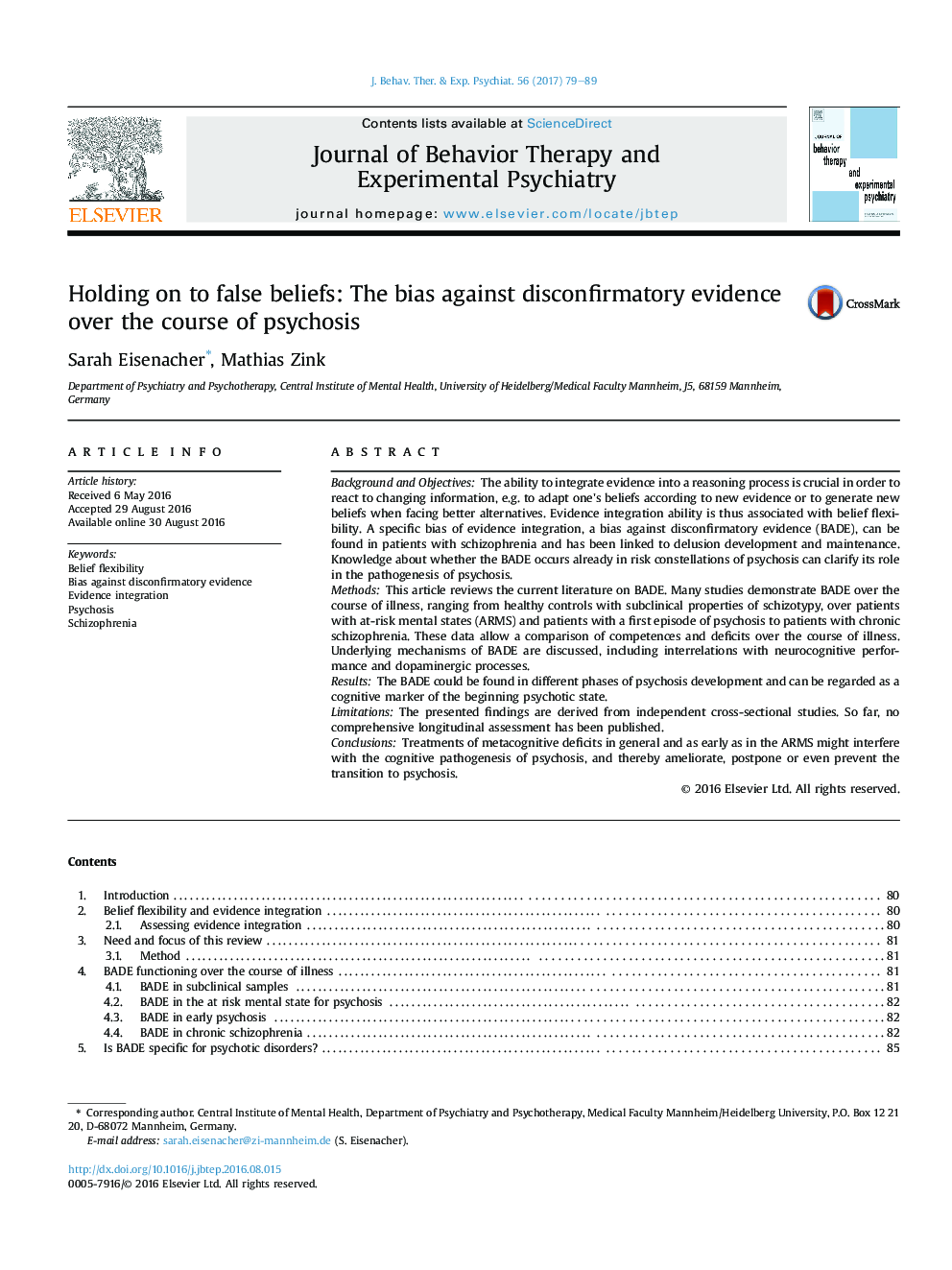| کد مقاله | کد نشریه | سال انتشار | مقاله انگلیسی | نسخه تمام متن |
|---|---|---|---|---|
| 5038988 | 1473060 | 2017 | 11 صفحه PDF | دانلود رایگان |
- The bias against disconfirmatory evidence (BADE) is present across the continuum of psychosis.
- Evidence exists for associations with delusion severity in specific.
- Dopaminergic processes potentially modulate the magnitude of the BADE.
- Negative symptoms and some neurocognitive abilities also influence the BADE.
- An early metacognitive intervention at the risk state for psychosis is indicated.
Background and ObjectivesThe ability to integrate evidence into a reasoning process is crucial in order to react to changing information, e.g. to adapt one's beliefs according to new evidence or to generate new beliefs when facing better alternatives. Evidence integration ability is thus associated with belief flexibility. A specific bias of evidence integration, a bias against disconfirmatory evidence (BADE), can be found in patients with schizophrenia and has been linked to delusion development and maintenance. Knowledge about whether the BADE occurs already in risk constellations of psychosis can clarify its role in the pathogenesis of psychosis.MethodsThis article reviews the current literature on BADE. Many studies demonstrate BADE over the course of illness, ranging from healthy controls with subclinical properties of schizotypy, over patients with at-risk mental states (ARMS) and patients with a first episode of psychosis to patients with chronic schizophrenia. These data allow a comparison of competences and deficits over the course of illness. Underlying mechanisms of BADE are discussed, including interrelations with neurocognitive performance and dopaminergic processes.ResultsThe BADE could be found in different phases of psychosis development and can be regarded as a cognitive marker of the beginning psychotic state.LimitationsThe presented findings are derived from independent cross-sectional studies. So far, no comprehensive longitudinal assessment has been published.ConclusionsTreatments of metacognitive deficits in general and as early as in the ARMS might interfere with the cognitive pathogenesis of psychosis, and thereby ameliorate, postpone or even prevent the transition to psychosis.
Journal: Journal of Behavior Therapy and Experimental Psychiatry - Volume 56, September 2017, Pages 79-89
